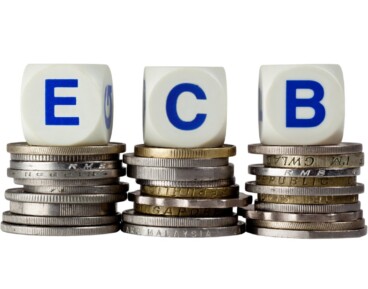Fundusze private equity – paliwo wzrostu czy korporacyjny flipping
Kategoria: Analizy
A reader asked for my opinion of this article by Wolfgang Münchau. More specifically, he asked about Münchau’s assessment that the euro will be weak in the short to medium term future. Münchau’s case can be summarized to the following premises:
1) Fiscal tightening will occur through the euro zone, especially in Greece and the other countries with large deficits.
2) Fiscal tightening either means that the private sector financial savings balance must weaken or that the current account balance will become stronger.
3) If the private sector financial balance weakens, then there will be a depression which will weaken the euro.
4) A stronger current account balance requires a weaker euro.
Since we given premises 1) and 2) must see either a weaker private sector financial savings balance or a stronger current account balance, then if we accept the truths of premises 3) and 4), a weaker euro is a certainty.
Is he right? Well, assuming very briefly for the sake of the argument that the premises are all correct, then he would indeed be right to argue that a weaker euro is unavoidable.
But are the premises correct? Well, premise 1) is nearly a certainty. Clearly most euro area countries, but particularly those that now have large deficits, will reduce their budget deficits.
Premise 2) is an accounting identity and thus a definite certainty. Private sector financial savings is defined as the government budget deficit plus the current account balance, so a lower government deficit will require either a reduction in the private sector financial savings balance or an increase in the current account surplus.
Premises 3) and 4) are however clearly incorrect. A weaker private sector financial savings deficit is not by necessity coupled with a depression. Indeed, empirically the private sector financial savings deficit is in fact bigger during booms than during busts. By reducing the budget deficit, consumers will feel less need to save in preparation for future fiscal tightening, and businesses can invest more because of lower interest rates. While a lower interest rate will in itself weaken the currency, this is something which probably has already been priced in during the recent period of euro depreciation.
And the idea that a stronger current account balance requires devaluation is pure nonsense. Latvia has seen its current account balance swing from a deficit of 26% of GDP in 2007 to a surplus of about 10% of GDP in 2009, without devaluation. Because fiscal tightening reduces demand for imports it is an effective way of reducing a current account deficit without lowering the value of the currency.
And despite a dramatic dollar rally in late 2008 and early 2009, the U.S. current account deficit dropped significantly in late 2008 and the first


